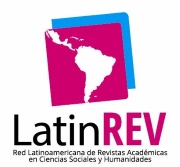MIGRANTS AS BROKERS OF FOOD HERITAGE MAKING: A CASE STUDY OF THE BARIO FOOD AND CULTURAL FESTIVAL IN BORNEO, SARAWAK, MALAYSIA
DOI:
https://doi.org/10.21680/2238-6009.2021v1n57ID27406Resumo
The communities’ ability to control heritage has been questioned and analysed in a broader perspective of socio-cultural cohesion and power. However, a research gap exists regarding the capabilities developed by the indigenous communities to collectively empower themselves by appropriating external resources such as research and development projects. To address this gap, we investigate the Kelabit socio-political configuration related to food heritage through the lens of the anthropology of brokers. The empirical basis of this contribution includes participant observation of the 11th edition of the Bario Food and Cultural Festival (Borneo, Sarawak, Malaysia) as well as semi-structured interviews with the Kelabit community members – local, diaspora and counter diaspora – and representatives of tourism and heritage. Overall, our findings unveil networked food heritage practices with outside agents and notably national and global academic institutions. Consequently, the analysis reveals the trans-identity capabilities of the Kelabit migrants in interfacing the local community with a range of stakeholders - and more specifically research networks – thereby adopting the role of cultural brokers. In doing so, the Kelabit people contribute to the intricate co-production of the definition of the Kelabit food heritage.


 Português (Brasil)
Português (Brasil) English
English Español (España)
Español (España) Français (Canada)
Français (Canada)






